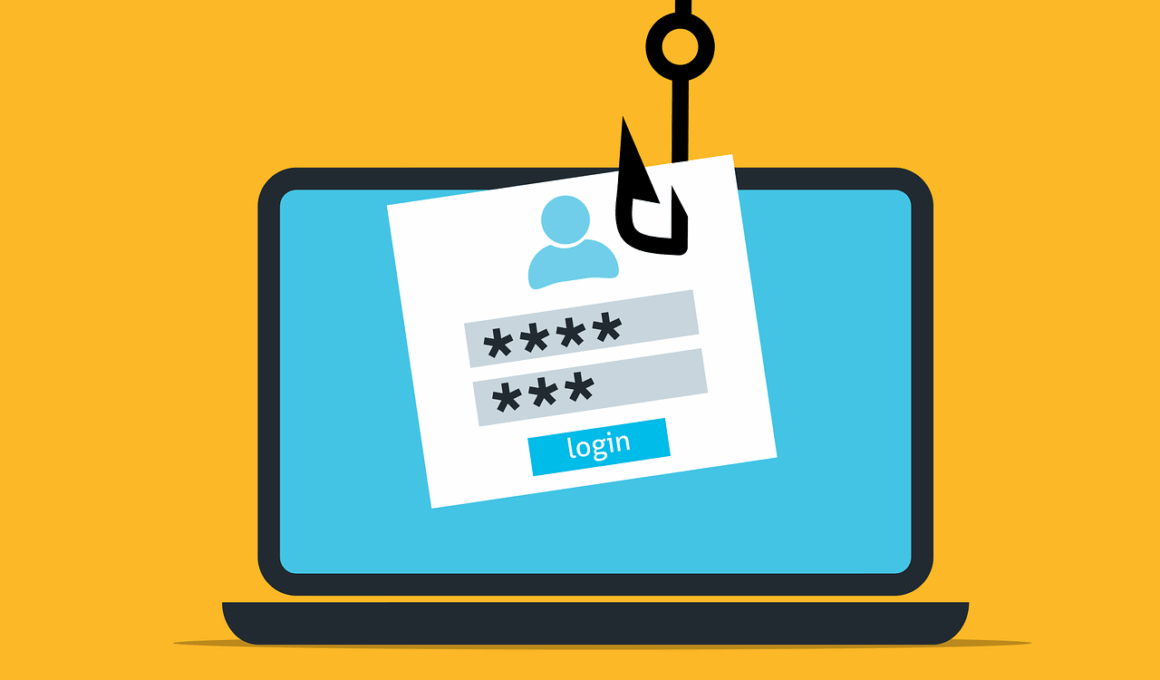Blockchain Technology for Fraud Mitigation in Financial Transactions
Fraud detection has become a crucial component in securing financial transactions as digital processes evolve rapidly. Traditional financial systems often face vulnerabilities that cybercriminals exploit. Blockchain technology emerges as a powerful ally in the fight against this evolving threat. With its decentralized structure, blockchain ensures enhanced security by allowing transaction verification across multiple nodes. This means fraud detection isn’t concentrated in one central point, making it difficult for malicious actors to manipulate data undetected. Moreover, data stored on a blockchain is immutable, meaning once recorded, transaction details cannot be altered or deleted. This attribute allows for extensive auditing capabilities, which can help trace fraudulent activities swiftly. Institutions can harness blockchain to maintain transparent records of transactions, fostering trust between parties involved. Transparency plays a key role in identifying anomalies and flagging suspicious activities. In addition, integrating artificial intelligence algorithms with blockchain can further enhance fraud detection capabilities. Predictive analytics can identify patterns typical of fraudulent behavior, allowing for real-time alerts. Consequently, the combination of blockchain and AI provides a robust framework for combatting financial fraud effectively.
How Blockchain Enhances Fraud Detection
One of the most significant advantages presented by blockchain technology in fraud detection is its inherent transparency. Every transaction, once added to the blockchain, becomes part of a public ledger accessible to all participants. This level of openness enables organizations to monitor transactions continuously and effectively. As suspicious activities are more easily identified, organizations can act quickly to prevent further damage. Additionally, since all transactions are documented chronologically on the blockchain, tracing any irregularities becomes a straightforward process. Furthermore, the consensus mechanism ensures that all nodes must agree before adding any transaction, reducing the likelihood of fraudulent activities succeeding undetected. This decentralized approach narrows the scope of potential breaches, making it significantly challenging for hackers to execute successful attacks. Implementing blockchain can also lead to enhanced customer identity verification processes, which are vital in reducing identity theft incidents. Through smart contracts, automated checks can facilitate compliance with regulatory requirements, ensuring that only legitimate transactions proceed. Thus, by integrating blockchain into financial systems, organizations not only bolster their defenses but also enhance overall operational efficiency.
The efficient use of blockchain technology significantly lowers operational costs related to fraud detection. In traditional financial systems, extensive resources are allocated to detecting and mitigating fraud-related risks. With blockchain, the need for intermediaries and extensive manual verification processes is reduced, resulting in marked cost savings. Additionally, the speed of transaction validation is dramatically improved, permitting organizations to respond to potential threats faster. Furthermore, blockchain’s ability to streamline auditing processes means fewer manpower resources are necessary for compliance. Automated systems can handle the majority of regulatory requirements, leading to less reliance on expensive manual labor. This efficiency ultimately translates into higher profit margins for organizations adopting blockchain solutions. Financial institutions can allocate their saved resources to innovation and further enhancing their services. The reduction of fraud-related inefficiencies further contributes to financial health, allowing organizations to thrive in competitive markets. As organizations realize the significant economic benefits of blockchain technology, the adoption rate is likely to increase. The overall landscape of fraud detection will dramatically shift as more players embrace decentralized solutions, paving the way for a more secure financial ecosystem.
Reducing Identity Theft with Blockchain
Identity theft constitutes a significant portion of fraud-related crimes in financial sectors. Blockchain technology offers effective solutions to combat this problem through its unique identity management features. By leveraging decentralized identifiers and self-sovereign identity models, individuals can own and control their personal data. This approach significantly decreases the risk of unauthorized access and identity duplication, as sensitive information is encrypted and stored directly on the blockchain. Additionally, biometric authentication methods can further strengthen this protective layer. As customers maintain ownership of their data, the probability of data breaches is minimized, leading to heightened security. Such systems also create transparency between organizations and clients, fostering trust. Clients are aware of who has access to their information, leading them to feel safer when engaging in transactions. Furthermore, financial institutions can rely on blockchain’s standardized processes to evaluate risk more accurately. In doing so, they can apply appropriate measures to rule out excessive risk from clients. Thus, comprehensively integrating identity management systems based on blockchain technology helps prevent fraudulent activities while promoting a secure financial environment.
The future of fraud detection in the fintech industry heavily leans towards the adoption of blockchain technology and its innovative capabilities. As financial criminals continuously devise advanced methods to exploit weaknesses, evolving solutions like blockchain become increasingly essential. Financial institutions must recognize the necessity for proactive fraud prevention strategies that leverage technological advancements. By adopting blockchain, they can position themselves at the forefront of security innovation, safeguarding both their interests and those of their clients. Additionally, the potential for collaboration is vast within fintech ecosystems employing blockchain. Multiple organizations can come together to share intelligence and establish a collective standard for fraud detection. The improvement of interoperability among platforms enhances the ability to identify patterns of fraud. Thus, the industry can work around commonly faced issues instead of operating in silos. Financial institutions must prioritize integrating blockchain into their systems to ensure enhanced security and customer satisfaction. Achieving a secure environment isn’t just a competitive advantage; it’s a market necessity. Building robust infrastructures reduces business risks and contributes positively to the long-term financial health of institutions and their clientele.
Challenges and Considerations in Implementation
While the advantages of implementing blockchain technology in fraud detection are compelling, several challenges must be accurately addressed before widespread adoption can occur. Key issues relate to regulatory compliance, data privacy, and the need for industry-wide standardization. Financial organizations often grapple with compliance requirements set by authorities, which can complicate the integration of blockchain-based systems. Furthermore, educating teams on new technology becomes critical to realization. Organizations must provide necessary training to ensure staff understands how to utilize blockchain effectively in fraud detection initiatives. Data privacy issues present another significant area of concern; while blockchain’s transparency is advantageous, ensuring private data is adequately protected is paramount. Companies must implement robust encryption protocols and ensure compliance with privacy regulations like GDPR. Standardization across different platforms and organizations can help facilitate smoother integration and cooperation among entities leveraging blockchain technology. Creating frameworks that encourage industry collaboration could ease data sharing and further enhance fraud mitigation strategies. Thus, addressing these challenges holistically will enable organizations to harness the maximum benefits blockchain technology can offer.
The integration of blockchain technology into fraud detection processes paves the way for a transformative financial future. The rapid evolution of technology necessitates a parallel growth in security measures and practices. As fintech continues to adapt and innovate, the inclusion of forward-thinking solutions will help maintain client trust and satisfaction. The financial services landscape is becoming increasingly interconnected, emphasizing the importance of collective security measures across platforms. Blockchain presents an opportunity for not just enhanced fraud detection but a fundamental shift in how transactions are verified and monitored. As more organizations adopt decentralized systems, a culture of accountability will flourish, increasing trust among users. Blockchain’s role in fraud detection will drive relationships toward transparency, decreasing risks associated with financial crimes. Consequently, as financial entities embrace blockchain technology, establishing improved operational standards becomes essential. Emphasizing education, regulation, and collaboration will foster a stronger economy and build resilience against fraud. Therefore, navigating the challenges while embracing opportunities will ensure that blockchain is integral to financial technology’s future success.

Overall, the intersection of blockchain technology and fraud detection represents a significant advancement in the world of finance. By leveraging its unique properties, organizations can create a safer environment for transactions and significantly reduce the impact of fraud. The importance of adopting such technologies cannot be overstated, as financial systems evolve to meet changing consumer expectations and technological advancements. In the face of rapid digital transformation, building trust with consumers becomes paramount for financial institutions. Embracing blockchain not only addresses these concerns but also sets the foundation for future innovations. As consumers demand more secure and transparent services, finance organizations that are quick to adopt these new technologies will likely outpace their competitors. Blockchain’s application in financial services will continue to expand, far beyond fraud detection into numerous aspects of operations and customer engagement. Thus, those at the forefront of these technological advancements will lead the charge towards a more secure, efficient, and trustworthy financial landscape. Embracing the change offers organizations the opportunity to not just survive but thrive in the new economy.





